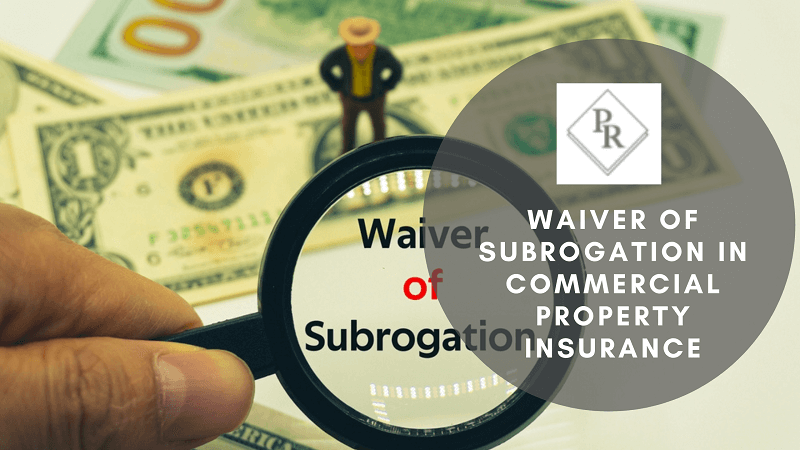Signing a contract with a waiver of subrogation clause allows one or more parties doing business together to give up the right to sue each other. Here’s a look at how the provision can impact your commercial property insurance coverage.
Where is a Subrogation Clause Used?
Your commercial property insurance policy will most probably include a subrogation provision. The clause is activated once your insurance company has compensated you for covered property damage or loss. It allows your insurer to assume your right to recover damages from the liable third party after paying your claim.
Protection of Subrogation Rights
Some commercial property insurance policies may prevent the insured from voluntarily waiving their right to sue a liable party after covered damage or loss. Giving up those rights means that your insurer cannot pursue a claim against the party responsible.
Mutual Waivers Under Commercial Property Insurance
Mutual waivers of subrogation often exist in contracts between landlords and tenants and in construction contracts. By signing such a waiver, you and your landlord give up your rights to recover damages from each other under your respective commercial property insurance policies. If your insurer compensates you for property damages that your landlord is liable for, they cannot sue the landlord to recover that cost.
Permitted Waivers
With a typical subrogation clause, you can waive your right to sue another person or company for potential future losses. The provision usually applies when the other party is either of the following:
- An insured party under your commercial property insurance policy
- Your company or subsidiary
- A company that owns or controls your company
- Your tenant
Suppose your company has 100% controlling stake in a subsidiary. Both companies can sign a mutual waiver of subrogation to the extent of protections available under their commercial property insurance policies. Doing so means neither company can try to recover property damages from the other in court.
What are Unilateral Waivers?
Unilateral waivers of subrogation are one-sided in that only one party is giving up the right to recover future damages or losses from the other. For instance, your landlord may ask you to sign the waiver in your lease so that you cannot sue them when they’re liable for damage to your personal property. Agreeing to the unilateral terms amounts to preserving your landlord’s right to sue you for any damage you may cause to their building while giving up yours.
Waiver of Subrogation in Construction Contracts
Contractors in the construction industry also use waivers of subrogation at times. Take the example of a project involving a general contractor (builder), subcontractors, and the project owner. The general contractor may have a mutual waiver of subrogation in their contract with subcontractors and the construction contract with the building owner. What this means is that all parties to the two contracts have waived their respective rights to sue one another with respect to damages covered by commercial property insurance. You should always consult your insurance company before signing such a waiver because it also affects their rights to sue the other parties.
To learn more about how commercial property insurance works, contact us at Premier Risk, LLC today. We provide a broad range of cost-effective risk-management solutions for small businesses.










